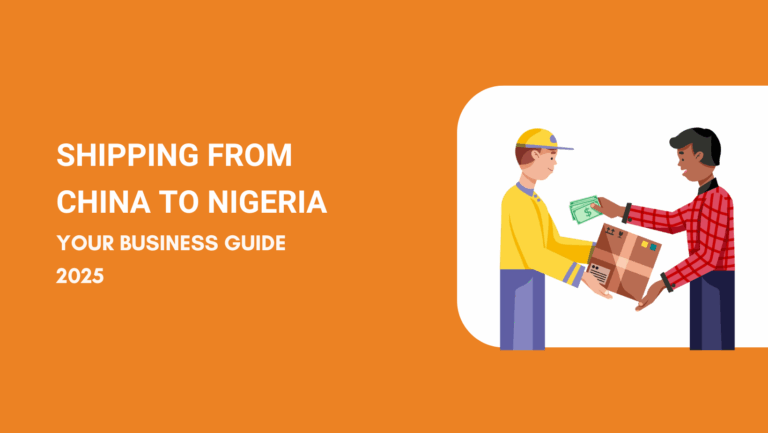Shipping from China to Nigeria is more than just moving goods, it’s a key part of your business strategy that directly affects your costs, delivery timelines, and customer satisfaction.
With trade between the two countries continuing to grow, understanding how to navigate shipping options, customs requirements, and cost variables gives your business a competitive edge.
Whether you’re using sea freight for bulk shipments or air freight for speed, every decision matters.
This guide will walk you through the entire process, from choosing the best shipping route to clearing Nigerian customs so you can import confidently, avoid delays, and keep your operations running smoothly.
Let’s start with a quick overview of the most common shipping methods and their associated costs.
| Shipping Method | Estimated Cost | Details |
| 20ft Container (FCL) | $2,550 – $6,000 | Sea freight; varies by port and volume |
| 40ft Container (FCL) | $3,850 – $9,150 | More economical per unit for bulk shipments |
| LCL (per CBM) | $30 – $160 | Shared container space; cost depends on volume |
| Air Freight (1–100 kg) | $8.99 – $14.99 per kg | Includes freight and clearing; rates drop as weight rises |
| Express Courier | $10.00 – $25.00 per kg | Fastest option; best for urgent parcels under 20 kg |
Note: Prices vary based on origin, destination, cargo type, and season. Confirm with a forwarder for exact quotes.
Popular Shipping Routes from China to Nigeria
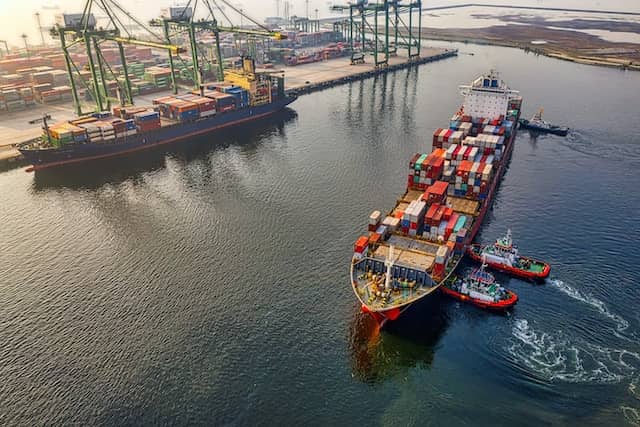
China and Nigeria maintain strong trade links, with well-established shipping routes supporting the flow of goods. Whether you’re using sea freight or air freight, selecting the right route can impact both your transit time and total shipping cost.
Sea Freight Routes
Most sea shipments from China to Nigeria are directed to key commercial ports such as Apapa Port, Tin Can Island, and Onne Port, with cargo departing from major export ports across China.
Common Origin Ports in China:
- Shanghai Port – One of the busiest ports globally; well-suited for containerized cargo
- Shenzhen (Yantian or Shekou Port) – Ideal for electronics, textiles, and consumer goods
- Guangzhou (Nansha Port) – Serves many manufacturers in southern China
- Ningbo-Zhoushan Port – Popular for machinery, tools, and building materials
- Qingdao Port – Often used for bulk shipments and industrial goods
Main Nigerian Destination Ports:
- Apapa Port (Lagos) – Nigeria’s busiest port; handles most container traffic
- Tin Can Island Port (Lagos) – Close to Apapa; widely used for FCL/LCL shipments
- Onne Port (Rivers State) – Preferred for businesses located outside Lagos, especially in eastern Nigeria
Transit Times (Sea Freight):
- FCL: 30–45 days depending on route and carrier
- LCL: 35–50 days due to cargo consolidation and handling delays
Air Freight Routes
For time-sensitive goods, air freight is the faster alternative. Cargo is flown from major Chinese airports directly or via hubs to Murtala Muhammed International Airport (LOS) in Lagos or Nnamdi Azikiwe International Airport (ABV) in Abuja.
Top Origin Airports in China:
- Guangzhou Baiyun International Airport (CAN)
- Shanghai Pudong International Airport (PVG)
- Beijing Capital International Airport (PEK)
- Shenzhen Bao’an International Airport (SZX)
Transit Time (Air Freight):
- Typically 3–7 days depending on service level and customs clearance
Tip: Sea freight is more cost-effective for bulk cargo, while air freight is best for light, high-value, or urgent shipments.
Key Shipping Terms: CIF, FOB, DDP, LCL, and FCL
CIF (Cost, Insurance, and Freight) means the seller pays costs, freight, and insurance against the buyer’s risk of loss or damage during transit. The responsibility transfers to you once the goods reach your destination port.
FOB (Free On Board) indicates that the seller bears the cost of getting goods to the port of shipment, and the buyer is responsible from that point on, including marine freight transport, insurance, unloading, and transportation costs from the arrival port to the final destination.
DDP (Delivered Duty Paid) places maximum responsibility on the seller. They take charge of shipping costs, including loss or damage of goods, customs duties and handling charges from the seller’s premises to your destination.
When it comes to container shipping, LCL (Less than Container Load) means you share container space with other shippers, ideal for smaller cargo not in need of a full container.
In contrast, FCL (Full Container Load) means you’re renting one or more full containers to transport your goods, which can be more economical for larger loads.
Sharpen your understanding of these Incoterms and other shipping options to negotiate better deals and streamline your logistics strategy when transporting products from China to Nigeria.
How to Ship from China to Nigeria?
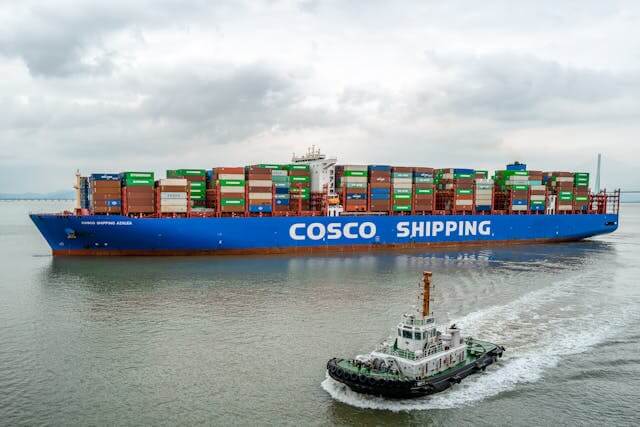
Shipping goods from China to Nigeria involves well-established sea routes and busy ports on both ends. Knowing which ports to use and how cargo typically moves can help you reduce costs and plan deliveries more efficiently.
Major Chinese Ports of Departure
China has several export hubs that handle high-volume shipments to West Africa. The most commonly used ports include:
- Shanghai – Largest port in China, ideal for general containerized goods
- Shenzhen – Popular for electronics and consumer products
- Ningbo-Zhoushan – Known for industrial goods and bulk cargo
- Guangzhou – Serves businesses in southern China
- Qingdao – Often used for textiles and machinery
Common Shipping Route
Most sea freight shipments to Nigeria travel:
Through the South China Sea > across the Indian Ocean > around the Cape of Good Hope > up the West African coast to Nigerian ports.
Ports of Entry in Nigeria
- Lagos (Apapa and Tin Can Island) – Main ports for commercial imports
- Onne Port (Port Harcourt) – Used by businesses operating in southern and eastern Nigeria
- Calabar Port – Smaller volume but serves the southeastern region
Door-to-Door Services:
Many freight forwarders offer door-to-door shipping, which covers pick-up in China, freight, customs clearance, and final delivery in Nigeria. This can simplify logistics, especially if you’re new to international trade or want to avoid dealing with multiple service providers.
Here is a table summarizing some key points:
| Chinese Port | Container Size | Shipping to Lagos Port |
| Shanghai | 20FT | From $2990 |
| Shenzhen | 40FT | From $3650 |
| Ningbo | 40FT | From $3990 |
| Guangzhou | 40FT | From $3600 |
Note: Rates vary based on season, freight forwarder, and shipping volume.
Other Factors to Consider
Transit times and costs can vary depending on:
- Seasonal demand (especially around peak sales or holiday periods)
- Port congestion
- Weather conditions around the Cape of Good Hope
- Inland transportation in Nigeria
Planning ahead and choosing the right port pairing can help you save both time and money.
Complete Shipping Costs from China to Nigeria in 2025
When importing goods from China to Nigeria, understanding and managing the associated costs effectively can determine the success of your operations.
The following subsections will detail how you can break down the charges, seek competitive rates, insure your shipments, and comprehend the factors influencing the overall shipping cost.

Breaking Down the Charges and Fees
Freight Charges
The core of shipping cost comes from the freight charge itself, which is the amount you pay to get your goods from China to Nigeria. This can vary widely depending on whether you choose air or sea freight.
Air freight typically costs $6.00 per kg with delivery times ranging from 3-5 days, and sea freight for a 20ft container starts from $1,900 with transit times of 35-45 days.
| Mode of Transport | Expected Cost | Transit Time |
| Air Freight (Per Kg) | $6.00 | 3-5 Days |
| Air Freight Consolidation (Per Kg) | $7.25 | 3-5 Days |
| Groupage Shipping + Clearing | $350 | 45-50 Days |
| 20ft Container Shipping + Clearing | From $1,900 | 35-45 Days |
| Express Courier Service (Minimum) | ₦32,791.43 | Depends on Service |
Handling Charges
These may include costs for picking up your cargo from the supplier, export documentation, and delivery to the airline or ship.
Customs and Duties
Import documentation and customs clearing in Nigeria typically involve dealing with Form M, PAAR (Pre-Arrival Assessment Report), and the actual customs clearing process. Costs here can fluctuate based on the value and type of goods.
Seeking Discounts and Competitive Rates
To optimize your shipping budget, it’s crucial to research and compare rates from different freight forwarders. Look for services that offer:
- Discounts for consolidated shipments.
- Seasonal or volume-based reductions.
- Competitive rates for different container types.
Negotiating terms with freight companies and consolidating shipments when possible can lead to significant savings.
Insurance for Your Shipments
Shipping insurance is a nominal cost that protects the value of your cargo against loss or damage during transit. Securing this for peace of mind is highly recommended, as the cost is minimal compared to the potential loss.
Cost Factors in Shipping from China to Nigeria
Understanding what affects your shipping costs helps in planning and negotiating the best rates for your business:
1. Weight and Volume
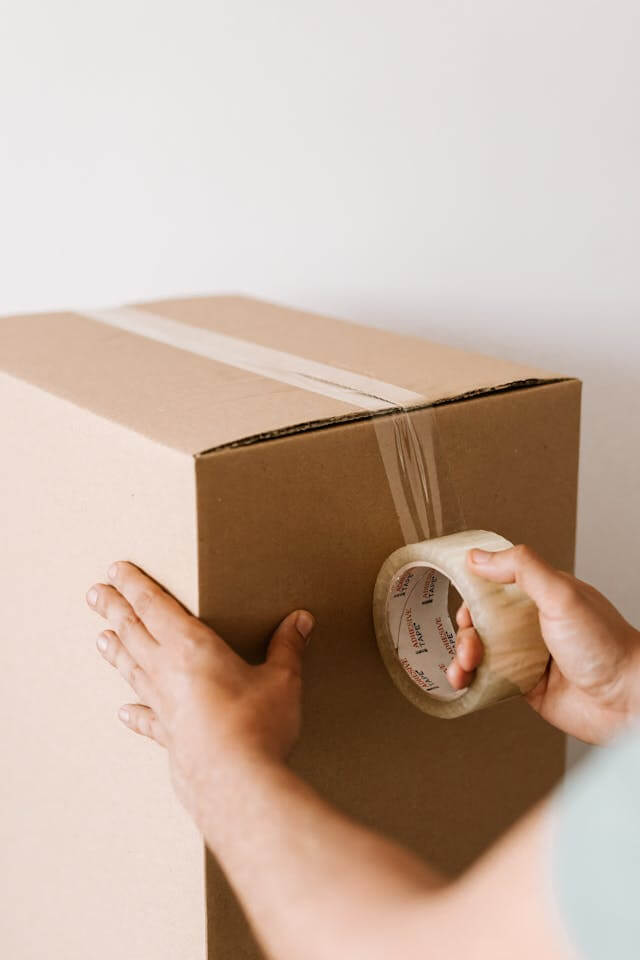
Heavier and larger shipments typically cost more. Air freight is generally priced on weight, while sea freight may consider both weight and volume.
2. Type of Goods
Sensitive or hazardous materials can incur higher charges due to special handling and storage requirements.
3. Service Selection
Costs vary whether you opt for express courier services, air freight, groupage, or full container services.
4. Supplier Location
Distance from the supplier to the port of departure in China can influence the pickup and handling charges.
5. Season
Peak seasons can affect pricing due to increased demand for shipping spaces.
How Long Does Shipping from China to Nigeria Take?

When you’re sending goods from China to Nigeria, the duration of shipping depends on whether you choose sea freight or air freight.
Air freight is typically much faster, often taking around 7 days to arrive. However, sea freight will take more time, with the transit period varying depending on the departure and destination ports.
Sea freight options include Full Container Load (FCL) or Less than a Container Load (LCL).
With FCL, you’re booking an entire container, which can be more cost-effective for large shipments. LCL is ideal for smaller cargo volumes since you’re only paying for the space you use.
Here’s a simple breakdown of the transit times for sea freight:
| Chinese Port | To Apapa (Lagos) | To Tincan Island (Lagos) | To Onne (Port Harcourt) |
| Shanghai | 24-28 days | 26-30 days | 35-40 days |
| Ningbo | 26-30 days | 28-32 days | 38-42 days |
| Tianjin/Xingang | 32-36 days | 34-38 days | 44-48 days |
| Qingdao | 28-32 days | 30-34 days | 40-44 days |
| Guangzhou | 25-30 days | 27-32 days | 37-41 days |
| Shenzhen | 25-30 days | 27-32 days | 37-41 days |
| Hong Kong | 25-30 days | 27-32 days | 37-41 days |
Keep in mind, these are estimated times and variables like weather conditions, shipping routes, and port congestion can affect them.
To minimize costs and potentially expedite your shipping, consider the following tips:
- Choose FCL when possible, as it can be more economical than LCL.
- Leverage 40-foot containers rather than 20-foot when the volume justifies it, due to the relatively small difference in cost but significant gain in space.
- Optimize your packaging to reduce both weight and volume, which can lead to lower costs.
- Plan ahead and book your shipment early to secure better rates and avoid last-minute fees.
- Consolidate your shipments if you have several parcels heading to the same destination, this could cut costs.
- Negotiate with shipping companies to get the best deal and consider working with a freight forwarder who can often secure better rates due to their volume of business.
Customs and Import Regulations in Nigeria
To avoid delays, fines, or confiscation, it’s essential to comply with both Chinese export requirements and Nigerian import regulations. Smooth customs clearance begins with accurate documentation and a basic understanding of trade compliance on both ends.
Compliance with International Trade Laws
Before you ship, ensure your goods meet the legal requirements of both countries:
- Chinese Export Rules: Your supplier must be approved to export. Products must meet export standards and not be restricted or under sanctions.
- Nigerian Import Rules: Goods must comply with Nigeria Customs Service (NCS) regulations and any relevant trade agreements or import controls.
Working with a freight forwarder or customs agent familiar with China–Nigeria trade can help avoid common compliance mistakes.
Meeting Nigerian Import Requirements
When your cargo arrives in Nigeria, the following documents are mandatory for processing:
| Document | Purpose |
| Bill of Lading (B/L) | Proof of shipment and receipt of goods |
| Commercial Invoice | Lists buyer/seller, product details, and declared value |
| Form M | Import declaration form, submitted via an authorized Nigerian bank to CBN |
| Packing List | Specifies weight, quantity, and packaging of each item |
| Single Goods Declaration (SGD) | Completed by your clearing agent; triggers customs inspection process |
| SONCAP Certificate | Confirms product compliance with Nigerian quality and safety standards |
Note: SONCAP applies to regulated products such as electronics, machinery, toys, and building materials. Unregulated goods are exempt but still require Form M.
Creating a Sales Contract
A well-drafted sales contract is not just a formality—it protects both buyer and seller and can support customs clearance. It should clearly state:
- Description of goods
- Quantity and unit pricing
- Agreed Incoterms (e.g., FOB, CIF, DDP)
- Payment terms
- Delivery timeline
The sales contract can also help verify declared value during customs inspection, avoiding disputes.
Choosing a Freight Forwarder or Shipping Agent in China
When you’re organizing shipping from China to Nigeria, the choice of your shipping partner can make a significant difference in the efficiency and reliability of your delivery process. Here are vital tips to help you select the right shipping company:
1. Evaluate Experience with China-Nigeria Shipments.
Shipping routes between China and Nigeria have their unique challenges. Choose a shipping partner with a strong track record in this specific corridor to ensure they understand the logistics nuances, from manufacturers’ logistics to local delivery networks.
2. Assess the Volume and Weight Handling Capabilities.
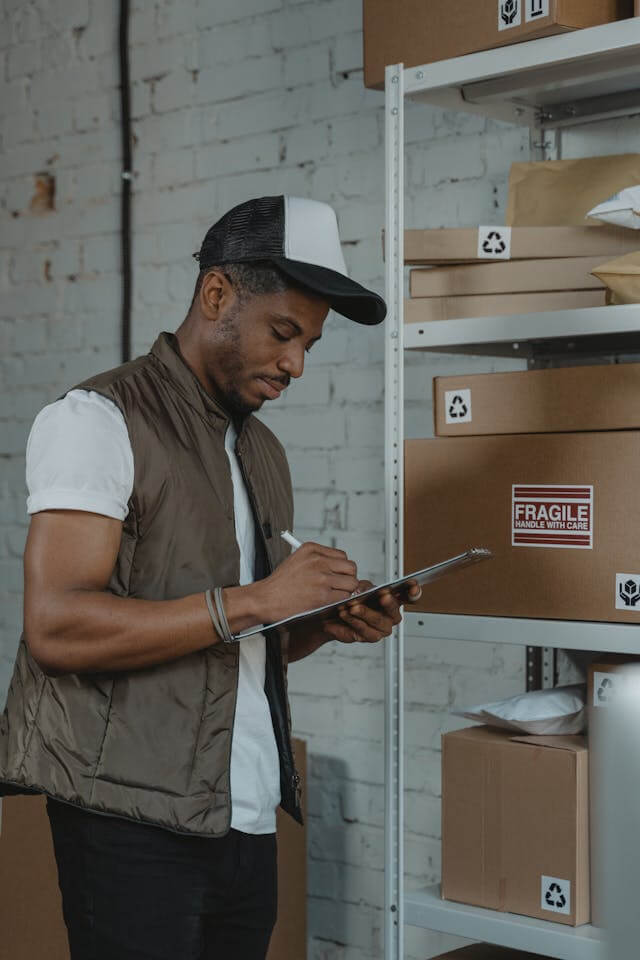
Ensure the shipping company can handle your package sizes, volume, and weight, especially if you’re considering container shipping or using a cargo plane. This will impact your cost and the ability to scale your business.
3. Examine the Range of Shipping Services.
The choice of shipping methods can affect your delivery times and costs. A good shipping partner offers a range of services, from express air freight to more economical sea freight options, providing you the flexibility to choose as per your need.
4. Check Availability of Tracking Tools.
Knowing the location of your goods gives peace of mind. Opt for shipping companies that offer robust tracking services for your shipments to stay updated and provide information to your customers.
5. Consider the Importance of Customer Service.
Customer service is crucial. A company with proactive customer service can make a big difference in managing any issues that may arise during transportation.
6. Look for Local Knowledge.
Your shipping partner should have on-the-ground local knowledge in both China and Nigeria to navigate the complexities of customs, clearances, and local delivery logistics.
By considering these factors, you can establish a strong partnership that will support your business growth and ensure that your goods arrive safely and efficiently.
Common Challenges in Shipping from China to Nigeria
Delays in Shipping
Shipping between Guangzhou or Shenzhen and Nigeria can be unpredictable, with timing varying widely. To avoid delays, plan your shipments well in advance.
Consult with courier companies like DHL and FedEx for their schedules and booking options. Consider door-to-door solutions where the courier manages the transportation at both ends, reducing the risk of unexpected hold-ups.
Lost Cargo
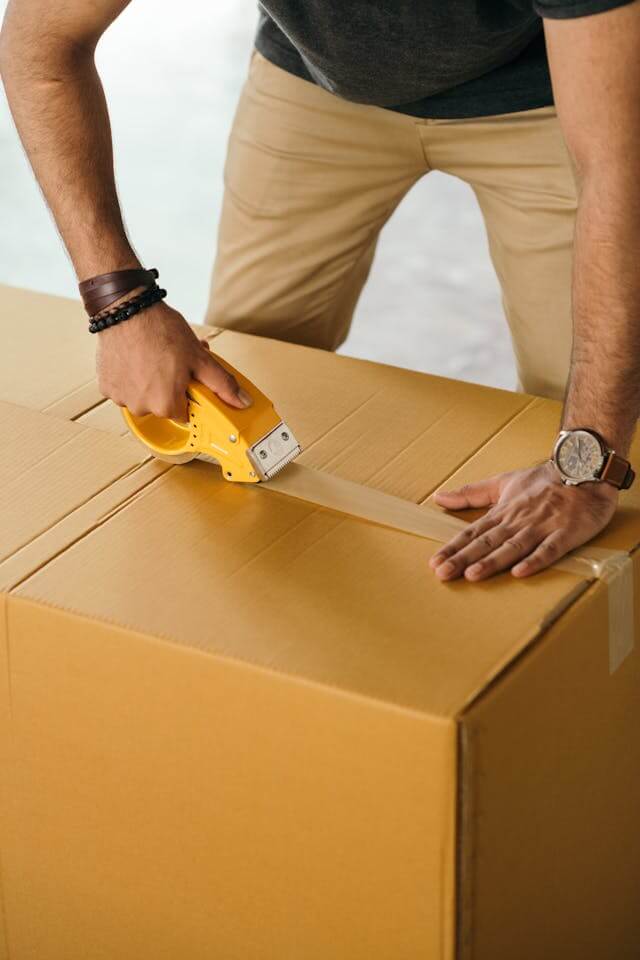
Losing a shipment can be a headache. To minimize this risk, ensure you’re working with reputable courier services and keep a detailed inventory list.
Track your order throughout its journey, and consider insurance for your shipments. Order tracking services are typically available, offering peace of mind and real-time updates.
Customs Clearance Problems
Complex customs regulations can cause clearance problems in Nigeria’s ports such as Onne.
Solve this challenge by staying informed about the latest import regulations and preparing all necessary documentation beforehand.
Align with local customs agents who understand the intricacies of Nigerian customs. This preemptive step can save you time and prevent your shipments from being held up.
Best Practices for Successful Shipping from China to Nigeria
When shipping goods from China to Nigeria, your attention to detail can make all the difference. Here’s how you can navigate the process effectively:
1. Understand Import Regulations.
Before initiating your shipment, familiarize yourself with Nigeria’s import regulations. This includes the Nigerian Customs Service requirements and the need for SONCAP certification, which verifies that your products comply with local standards.
2. Choose Reliable Suppliers.
Work with trusted Chinese suppliers—places like Guangzhou and Shenzhen are bustling with businesses. If you’re sourcing from marketplaces like Alibaba, verify supplier credibility and ensure they have experience in international trade.
3. Complete Your Documentation.
Certain documents are crucial for a smooth shipping experience. These include a detailed commercial invoice, a packing list, and a bill of lading. Accurate documentation helps in customs clearance and avoids delays.
4. Secure Your Cargo.
Insure your goods against loss or damage. It’s a small cost relative to the security it provides, especially for long hauls from China to Nigeria.
5. Understand INCOTERMS.
Knowing the International Commercial Terms (INCOTERMS) helps clarify the responsibilities between you and your supplier. It dictates costs, risks, and tasks associated with the delivery of goods.
6. Plan Logistically.
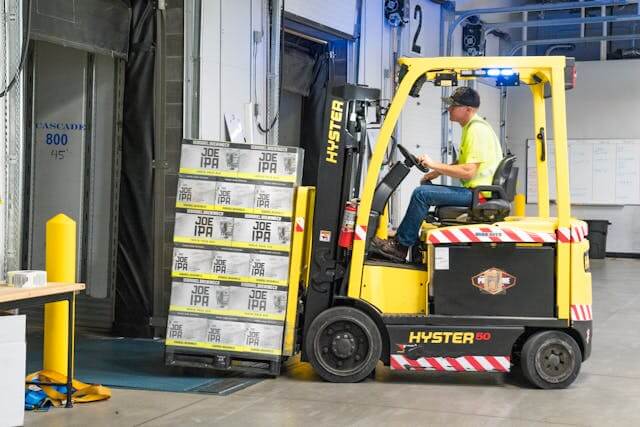
Opt for a doorway delivery service if possible. This can be arranged through courier companies like DHL or FedEx. If warehousing is required, ensure it fits with your logistics flow to prevent storage issues.
7. Communicate Effectively.
Maintain open communication channels with your logistics company, supplier, and the shipping service. Timely updates can help manage your schedule better and allow quick action if any issues arise.
8. Consider E-Commerce Expectations.
If you’re in e-commerce, speed is paramount. Air freight is more expedient but also pricier. Balance your needs between time-sensitive delivery and cost-efficiency.
FAQs about Shipping from China to Nigeria
What Can I Import from China to Nigeria to Make Money?
You can import a variety of goods from China that cater to the Nigerian market’s demands. Electronics, fashion items, and plastic goods are popular choices that often yield a significant return on investment.
What Are the Importable and Prohibited Goods When Shipping from China to Nigeria?
Importable goods span across many categories, but it’s essential to avoid shipping prohibited items such as drugs, firearms, and pirated material. Always verify the latest customs regulations to stay compliant.
How to Start Import Business from China?
To start, research in-demand products, find reputable suppliers, and understand Nigeria’s import regulations. Establishing a relationship with a reliable freight forwarder can also streamline your shipping process.
How Much Does It Typically Cost to Ship a 40ft Container from China to Nigeria?
The cost for shipping a 40ft container from China to Nigeria typically starts around $4,000. This figure can fluctuate based on shipping options and market conditions.
How Can I Reduce the Costs of Sea Shipping from China to Nigeria?
To lower expenses, consider consolidating your shipments, choosing slower transit times, or negotiating better rates with your freight forwarder. Efficient packing to maximize container space can also reduce costs.
Ship Products from China to Nigeria Hassle-Free with Niche
Shipping products from China to Nigeria doesn’t have to be complicated. With the right strategy and reliable support, you can streamline logistics, avoid costly delays, and grow your business faster.
Whether you’re importing for the first time or scaling up, focus on what matters:
- Understand customs requirements to stay compliant
- Choose the best shipping method based on volume, budget, and urgency
- Prepare accurate documentation to avoid clearance delays
- Plan for duties, taxes, and last-mile delivery costs
In summary, you’ve got the products, and you’ve got the vision. It’s all about connecting the dots with strategic shipping practices. Keep abreast of the latest trends in freight and customs to save time and money.
To streamline your shipping process and ensure a smooth experience, consider our comprehensive freight forwarding services. We handle everything from pickup at the supplier in China to final delivery in Nigeria, navigating customs procedures and documentation on your behalf.
For a tailored logistics solution that covers all aspects of your shipping needs, request a freight forwarding quote today.
Need a hand with sourcing? Take a moment to request a free sourcing quote. At NicheSources, we’re here to make your shipping experience from China to Nigeria efficient and cost-effective.
